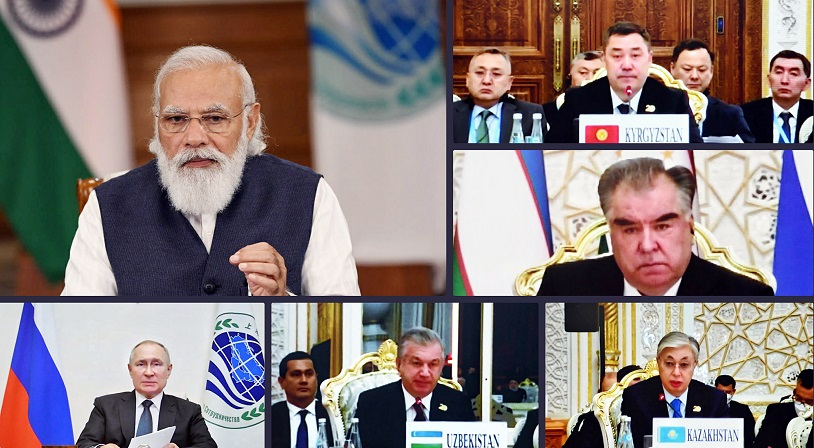The PM was addressing virtually the SCO summit.
It happened sooner than later. According to reliable sources, a few days ago a fracas took place at the Presidential Palace in Kabul.
Mullah Abdul Ghani Baradar—considered a balanced, non-fanatical Taliban leader—was apparently physically attacked by a member of the Haqqani network. The Taliban high-ups were deliberating the forming of a cabinet. Mullah Baradar was in favour of having an “inclusive” cabinet, which would include the non-Taliban also. This was not acceptable to Khalilul Rahaman Haqqani. He punched Mullah Baradar. The respective bodyguards had a shootout. Fortunately, Mullah Baradar was not wounded. He soon left for Kandahar to meet the Taliban spiritual head, Haibatullah Akhundzada.
Before I emphasis the significance of Prime Minister Narendra Modi’s virtual speech at the Shanghai Cooperation Organisation, I will mention what President Xi Jinping said. He emphasised the SCO should assist in a smooth transition in Afghanistan and ensure the establishment of an all-inclusive government.
He also spoke against terrorism, separation and extremism. The Shanghai Cooperation Organisation consists of India, China, Russia, Kazakhstan, Kyrgyzstan, Pakistan, Tajikistan and Uzbekistan. Afghanistan is an observer.
He stressed, “We, SCO member states need to set up a coordination (set-up) to make full use of platforms such as SCO-Afghanistan Contact Group, and facilitate a smooth transition in Afghanistan… We the SCO need to encourage Afghanistan to put in place a broad-based political framework, adopt moderate domestic and foreign policies… Resolutely fight terrorism.” With due respect to the leader of China, I do not think the Taliban government would be capable of implementing any of the three eminently wise suggestions. They have no idea of how to govern or how to conduct foreign policy and domestic administration. To ask terrorists to “resolutely fight terrorism” is like expecting a crocodile to fight another non-existing crocodile. The Taliban are the terrorists.
Finally, Mr Xi Jinping proposed the SCO countries should “pursue common, comprehensive and cooperative action, and take tough steps against terrorism, separatism, including the East Turkestan Islamic Movement”. If I may say so, he is confusing hope with reality. Common action by the SCO is most unlikely. The United States will be the spoiler.
President Vladimir Putin of Russia said that Russian government supports a UN conference on Afghanistan and that the world should consider unfreezing Afghanistan assets.
The Security Council met to discuss Afghanistan. Outcome—no solution emerged. The UN General Assembly is a noisy “jamboree”, where sustained serious discussions are rare.
Now to Prime Minister Narendra Modi, who spoke on the situation in Afghanistan and India’s approach to the crisis in that country. He was addressing to a joint meeting of the Shanghai Cooperation Organisation and the Russia-led Collective Security Treaty Organisation (CSTU). The Prime Minister was speaking from Delhi. External Affairs Minister S. Jayashankar was in Dushanbe, leading the Indian delegation.
The Prime Minister made the following points. The change in Afghanistan was not inclusive and was done without negotiation. The SCO should have strict and common norms to deal with terrorism. No tolerance of terrorism or its export from Afghanistan. Challenge is growing radicalism.
Among India’s key concerns were Pakistan based Lashkar-e-Tayyaba and Jaish-e-Mohammed. The Prime Minister called for protection of women and minorities. He listed four grave issues. The spread of terrorist and extremist ideologies if instability continues in Afghanistan, the possibility of uncontrolled flow of drugs, illegal weapons and human trafficking and the serious humanitarian crisis in the war torn country. Questions were being raised about, “acceptability of new regime”. “Therefore it is essential that the world community decides on the recognition of the new regime in a thoughtful and collective manner.”
“The 20th anniversary of SCO is a suitable occasion to think about the future of the SCO. I believe the biggest challenges in the region are related to peace, security and trust deficit and the root cause of these problems is radicalism.”
The country now knows what precisely India’s Afghan policy is. The Prime Minister has cleared the diplomatic fog.

